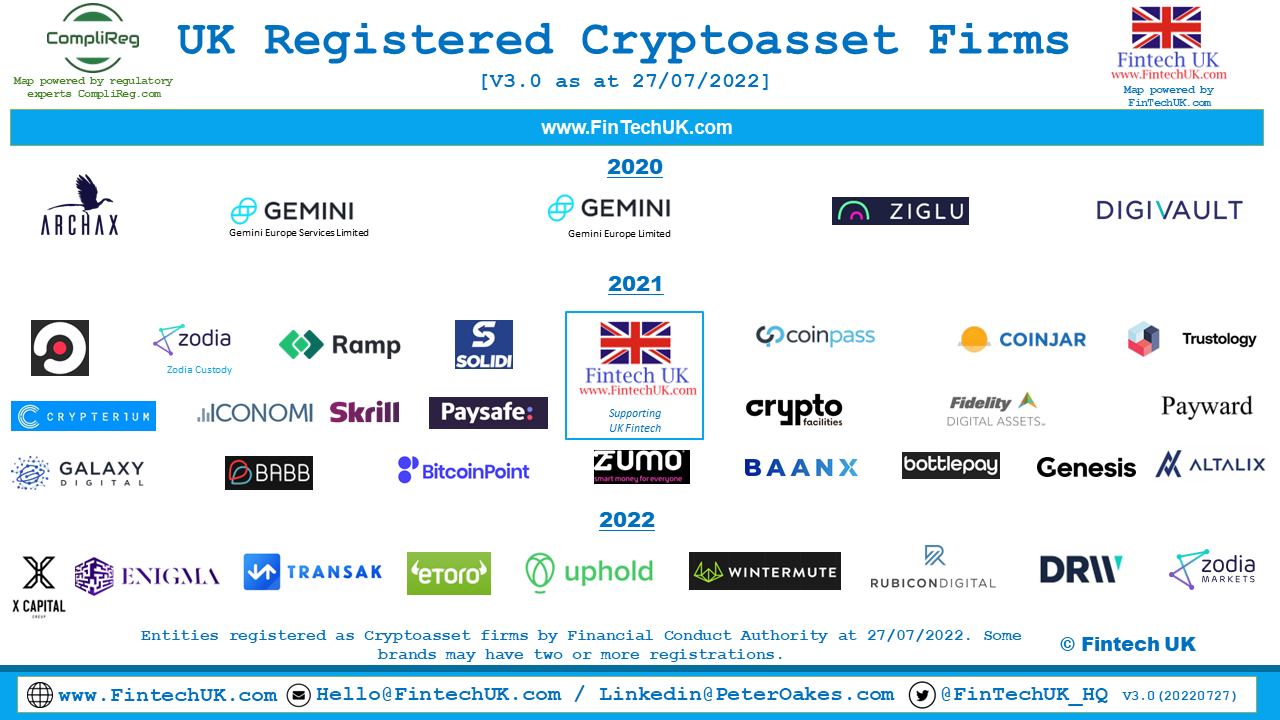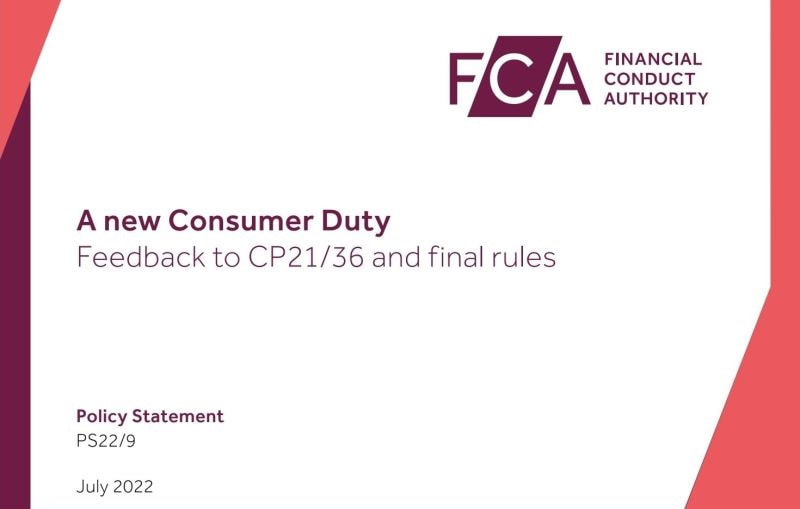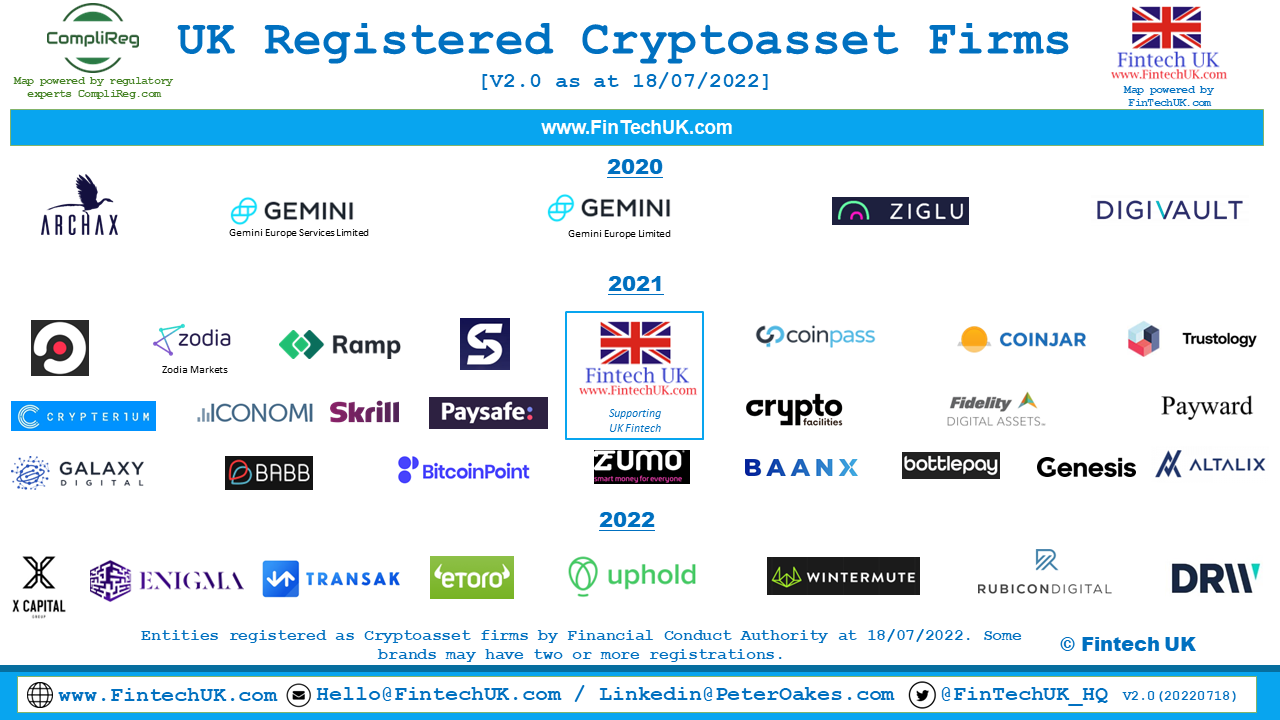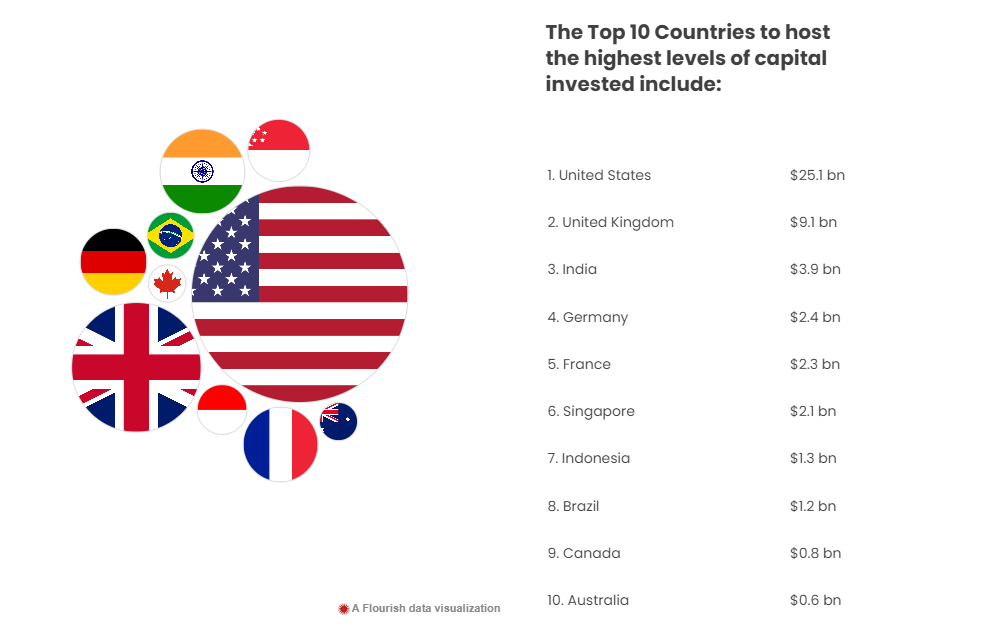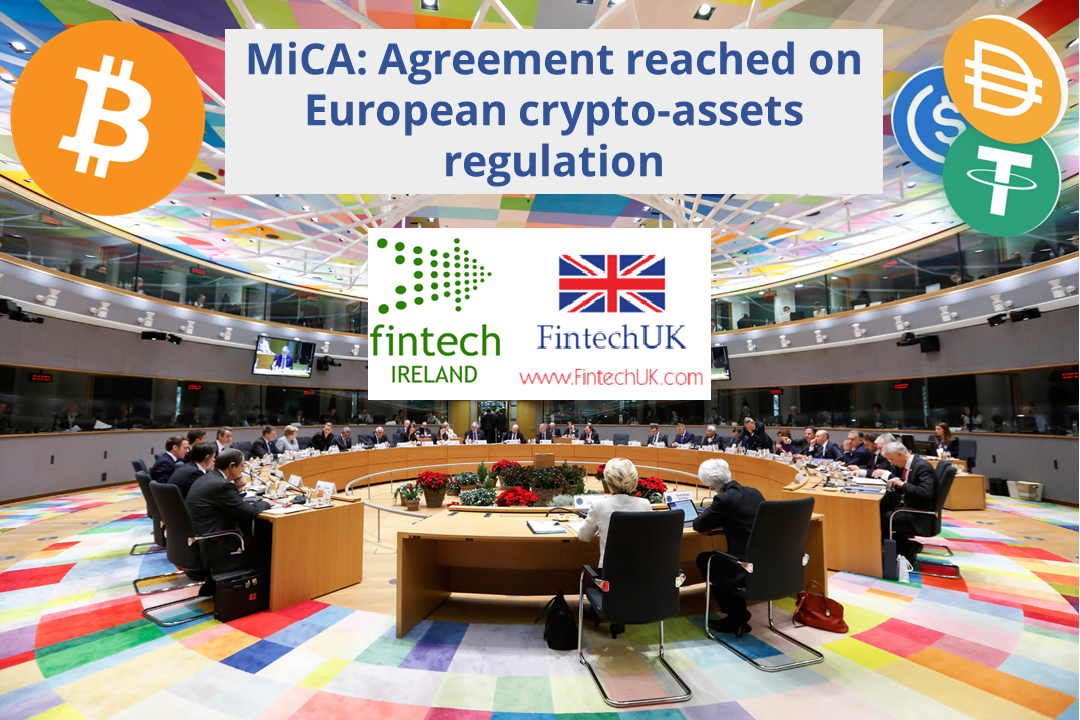If you are are crypto firm seeking regulatory advice or director services, please contact CompliReg for assistance at the details appearing here and check out its VASP registration and other authorisation services here.
Hope you like the Map (Version 3.0)!
Don't forget to sign up to our Newsletter (we don't spam) by clicking here. We use MailChimp, which means you can unsubscribe whenever you like.
Welcome to the second edition (version 3.0) of Fintech UK's and CompliReg's (a leading provider of fintech consulting services to crypto asset firms) UK FCA registered Cryptoasset Firms Map.
There are now 36 registered Cryptoasset firms appearing on the Financial Conduct Authority's (FCA) website as at Thursday 28th July 2022. Welcome to Zodia Markets. The FCA register records Zodia Markets registration effective 27th July 2022. We also took the opportunity to update Solidi's logo too.
We will not repeat what we said in our Blog on Version 2, which was released recently on Monday 18th July 2022. You can read the Version 2 blog here.
As we continue to Map registered Cryptoasset firms, expect to see certain logos appear more than once as several brands will be registering several Cryptoasset firms for different purposes, such as - for example - services for (1) trading and (2) custody. An example of this is in fact Zodia. While Zodia Markets (UK) Limited was registered on 27 July 2022, its affiliate Zodia Custody Limited was registered effective 15 July 2021.
At the time we released Version 1, there were 218 (thereabouts) unregistered cryptoasset business listed on the UK FCA's website that appear, to the FCA, to be carrying on cryptoasset activity, that are not registered with the FCA for anti-money laundering purposes. As of today, that number has remained steady at 248 since 18th July 2022..
The firms thus far registered by the FCA include:
2020: Archax Ltd, Gemini Europe Ltd, Gemini Europe Services Ltd, Ziglu Limited, Digivault Limited,
2021: Fibermode Limited, Zodia Custody Limited, Ramp Swaps Limited, Solidi Ltd, Coinpass Limited, CoinJar UK Limited, Trustology Limited, Commercial Rapid Payment Technologies Limited, Iconomi Ltd, Skrill Limited, Paysafe Financial Services Limited, Crypto Facilities Ltd, Fidelity Digital Assets LTD, Payward Limited, Galaxy Digital UK Limited, BABB Platform Ltd, BCP Technologies Limited, Zumo Financial Services Limited, Baanx.com Ltd, Bottlepay Ltd, Genesis Custody Limited, Altalix Ltd,
2022: X Capital Group Limited, Enigma Securities Ltd, Light Technology Limited, eToro (UK) Ltd, Uphold Europe Limited, Wintermute Trading LTD, Rubicon Digital UK Limited, DRW Global Markets Ltd and Zodia Markets (UK) Limited
Revolut Ltd, as of today, is the only firm listed on the Temporary Registration list and it was listed on December 2021 list too. Interestingly, in addition to a cryptoasset registration, the Revolut group hasn't achieved obtaining of its much talked about bank authorisation in the UK either.
We are looking forward to seeing how many more will be registered before the end of the year.
The post accompanying Version 2 appears at:
- CompliReg: https://complireg.com/blogs--insights/uk-registered-cryptoasset-map-version-20-monday-18th-july-2021
- Linkedin: https://www.linkedin.com/posts/peteroakes_fintechuk-crypto-digitalasset-activity-6954800838179491840-lCjM?utm_source=linkedin_share&utm_medium=member_desktop_web
Further Reading:
Version 1 of the Map and the Blog of 20 December 2021 - located here
Version 2 of the Map and the Blog of 18 July 2022 - located here
List of Unregistered Cryptoasset Businesses as at 28 July 2022 - located here
